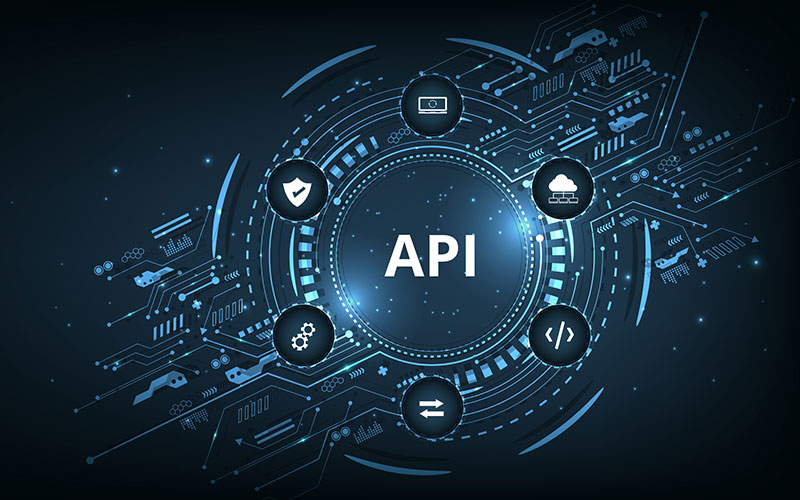In the ever-evolving landscape of Web Development Services, choosing the right platform and programming language is crucial for the success of any online project. At Web Craft Pros, a premier web development agency based in New York, USA, we strive to provide our clients with the most effective and innovative solutions.
This article delves into the intricacies of web development services, comparing WordPress with its competitors, and highlighting the optimal programming languages for various types of projects.
WordPress: The Ubiquitous Choice:
WordPress is an open-source content management system (CMS) that powers over 40% of websites on the internet. Its popularity is attributed to its flexibility, ease of use, and extensive ecosystem of plugins and themes. Initially launched as a blogging platform in 2003, WordPress has evolved to support a wide range of websites, from simple blogs to complex e-commerce sites and corporate portals.
Advantages of WordPress:
- User-Friendly Interface: WordPress offers an intuitive interface that allows even non-technical users to manage and update their websites with ease.
- Customization Options: With thousands of themes and plugins available, WordPress allows for extensive customization to meet specific needs.
- SEO-Friendly: WordPress is designed with search engine optimization (SEO) in mind, making it easier to optimize content and improve search rankings.
- Community Support: A vast and active community provides support, updates, and enhancements, ensuring WordPress stays current and secure.
- Cost-Effective: As an open-source platform, WordPress is free to use, with additional costs mainly coming from premium themes, plugins, and hosting.
Disadvantages of WordPress:
- Security Vulnerabilities: Being the most popular CMS, WordPress is often targeted by hackers. Regular updates and security plugins are essential to mitigate risks.
- Performance Issues: Websites with numerous plugins can suffer from performance issues, necessitating careful plugin management and optimization.
- Customization Complexity: While WordPress is highly customizable, achieving complex functionality may require significant coding knowledge.
Competitors: Exploring Alternatives:
Joomla:
Joomla is another open-source CMS that is known for its flexibility and powerful content management capabilities. It is a popular choice for more complex websites requiring robust functionality.
Advantages of Joomla:
- Flexibility: Joomla offers advanced user management and a wide range of extensions, making it suitable for complex sites.
- Multilingual Support: Built-in support for multiple languages is a significant advantage for global websites.
- Strong Community: Like WordPress, Joomla has an active community that contributes to its development and support.
Disadvantages of Joomla:
- Steeper Learning Curve: Joomla’s complexity can be challenging for beginners compared to WordPress.
- Fewer Extensions: Although there are many extensions available, the selection is not as extensive as WordPress.
- Customization Challenges: Customizing Joomla to match specific needs can be more complex and time-consuming.
Drupal:
Drupal is a powerful CMS known for its robustness and scalability. It is often used for large, complex websites that require high performance and security.
Advantages of Drupal:
- Scalability: Drupal excels at handling large volumes of content and high-traffic sites.
- Security: Known for its strong security features, Drupal is a preferred choice for government and enterprise websites.
- Flexibility: Drupal offers extensive customization options and supports complex content structures.
Disadvantages of Drupal:
- High Complexity: Drupal has a steep learning curve, requiring significant technical expertise.
- Development Time: Building a Drupal site can be time-consuming due to its complexity.
- Resource Intensive: Drupal sites often require more server resources, leading to higher hosting costs.
Wix and Squarespace:
Wix and Squarespace are popular website builders that offer an easy-to-use, drag-and-drop interface. They are ideal for users who need a quick and simple way to create a website without any coding knowledge.
Advantages of Wix and Squarespace:
- Ease of Use: Both platforms offer user-friendly interfaces that make website creation accessible to anyone.
- All-In-One Solution: Hosting, domain registration, and design tools are integrated into the platforms, simplifying the process.
- Design Templates: A wide range of professional templates makes it easy to create visually appealing websites.
Disadvantages:
- Limited Customization: While easy to use, these platforms offer limited customization options compared to open-source CMSs.
- SEO Limitations: SEO capabilities are not as advanced as WordPress, Joomla, or Drupal.
- Scalability Issues: These platforms are less suited for large, complex websites.
Optimal Programming Languages for Web Development Services:
Choosing the right programming language is crucial for the success of a Web Development Services project. Here are some of the most popular programming languages and their optimal use cases.
HTML, CSS, and JavaScript:
HTML:
Hypertext Markup Language (HTML) is the standard markup language for creating web pages. It structures the content on the Web Development Services.
CSS:
Cascading Style Sheets (CSS) is used for styling HTML content. It allows web developers to separate content from design, making it easier to manage and update.
JavaScript:
JavaScript is a versatile script
Use Cases:
- Front-End Development: HTML, CSS, and JavaScript are fundamental for creating responsive and interactive user interfaces.
- Single-Page Applications: JavaScript frameworks like React, Angular, and Vue.js are ideal for building dynamic single-page applications (SPAs).
PHP
PHP is a server-side scripting language widely used in Web Development Services. It is particularly known for its integration with databases and dynamic content generation.
Use Cases:
- Content Management Systems: PHP powers popular CMSs like WordPress, Joomla, and Drupal.
- E-Commerce: PHP is often used for developing e-commerce platforms due to its robust database support and extensive libraries.
- Web Applications: PHP is suitable for building a variety of web applications, from simple websites to complex enterprise solutions.
Python:
Python is a high-level programming language known for its readability and versatility. It is increasingly popular in Web Development Services due to its simplicity and robust frameworks.
Use Cases:
- Web Frameworks: Django and Flask are powerful Python frameworks for building scalable web applications.
- Data Science and Machine Learning: Python’s extensive libraries and tools make it a preferred choice for integrating data science and machine learning capabilities into web applications.
- Scripting and Automation: Python is widely used for scripting tasks and automating workflows.
Ruby:
Ruby is a dynamic, object-oriented programming language known for its simplicity and productivity. It powers the Ruby on Rails framework, which emphasizes convention over configuration.
Use Cases:
- Web Applications: Ruby on Rails is ideal for building web applications quickly due to its robust set of conventions and libraries.
- Startups: Many startups prefer Ruby on Rails for its rapid development capabilities and ease of maintenance.
- Prototyping: Ruby’s simplicity makes it an excellent choice for prototyping and MVP (Minimum Viable Product) development.
Java:
Java is a powerful, object-oriented programming language widely used in enterprise-level web applications. It is known for its performance, scalability, and robustness.
Use:
- Enterprise Applications: Java is the go-to language for large-scale enterprise applications due to its reliability and scalability.
- Android Development: Java is the primary language for Android app development, making it essential for cross-platform projects.
- Web Applications: Java frameworks like Spring and Hibernate are popular choices for building secure and scalable web applications.
Conclusion:
At Web Craft Pros in New York, USA, we understand that choosing the right platform and programming language is essential for the success of any web development project. WordPress remains a popular choice due to its flexibility, user-friendliness, and extensive ecosystem. However, alternatives like Joomla, Drupal, Wix, and Squarespace each offer unique advantages depending on the project’s complexity and requirements.
When it comes to programming languages, the choice largely depends on the specific needs of the project. HTML, CSS, and JavaScript are fundamental for front-end development, while PHP, Python, Ruby, and Java each offer distinct benefits for back-end development and web applications.
By carefully considering the strengths and weaknesses of each platform and programming language, businesses can make informed decisions that lead to successful and sustainable Web Development Services projects. At Web Craft Pros, we are committed to helping our clients navigate these choices and achieve their online goals with confidence and expertise.
Contact Us:
For more information about our web development services and how we can help you achieve your online objectives, please contact Web Craft Pros in New York, USA. Our team of experienced developers is ready to assist you with all your Web Development Services needs.










One Response